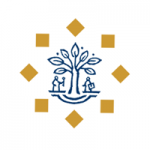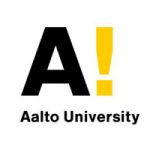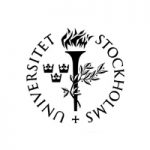项目介绍
Your position and project
In this project you will study how new digital technologies reconstitute ambulatory hospital care at a top clinical (non-academic) hospital, including the role of the hospital as an organization in an ecosystem of organizations adapting to and driving digital transformation, and adaptation among healthcare professionals. A central premise of the project is that people, technologies, and values co-evolve. The central question you will address Is: How are patterns of institutional and individual decision-making power shifting in ambulatory care due to the introduction of new technologies? The project will look at multiple levels in three, related studies:
- The hospital within a broader ecosystem: How do hospital decision-makers manage tensions brought about by new digital business models in their ecosystem?
- Healthcare professionals: How do healthcare professionals perceive the advantages of new technologies, such as those in the design of a new ambulatory clinic? What types of invisible work are not captured by new technologies? How do these professionals adapt to a new technology-focused ambulatory clinic design?
- Linking micro- and meso: How do tensions or mismatches between the healthcare context and private sector organizations supplying new technologies manifest in clinical care?
Together with a team of researchers you will pave the way for understanding how ambulatory care is moving from the consultation room in the hospital to networks of people and firms that produce, collect, and aggregate the data and develop the algorithms.
In this project, you will conduct in-depth case studies in an ambulatory clinic. The selection of the cases can be based upon a review and/or an interview study. In different settings you will study digitalization process undertaken, in particular the integration of digital services within decision-making processes and workflows. Based upon empirical work you will develop the concepts to understand the sets of interactions between people and organizations that these systems enable or disable.
This position will be hosted by the Tilburg School of Social & Behavioral Sciences in the Department of Organization Studies.
This project is part of the Gravitation programme Public Values in the Algorithmic Society (algosoc). The Gravitation program is an initiative by the Dutch government to support excellent research in the Netherlands. The funding is reserved for scientific consortia that have the potential to rank among the world’s best in their field. Algosoc is a response to the urgent need for an informed societal perspective on automated decision making. Funded by the ministry for Education, Culture and Science for a period for 10 years, research in the algosoc programme will be grounded in a deep understanding of the systemic changes that automated decision making entails for core public institutions, for society, and for how public values are realised. The research will focus on three sectors: justice, health, and media. The programme brings together researchers in law, communication science, computer science, philosophy, public governance, STS, economy, and social sciences from five Dutch universities (Amsterdam, Utrecht, Tilburg, Delft and Rotterdam). Together, the algosoc community will develop solutions for the design of governance frameworks needed to complement technology-driven initiatives in the algorithmic society.
The current position is part of the algosoc health sector and is located in Tilburg. As a postdoc researcher, you will get the unique opportunity to help shape the research programme with your research plan. Closely collaborating with your fellow researchers and mentored by top scholars from various disciplines, you are encouraged and supported to conduct your project.
Your profile
We expect you to have:
- A PhD in organization studies, management or a related field such as science and technology studies, health informatics, or organizational sociology. Other disciplinary backgrounds with good command of qualitative methods will be considered.
- A clear research interest in the topic of the project;
- Mastering a rich plethora of social science methodological skills
- An excellent written and spoken command of English, as demonstrated by publications in English-language journals (a basic command of Dutch is preferred, given the interaction with the target audience);
- The ability, willingness, and commitment to do autonomous work in a multidisciplinary team that includes legal scholars, communication scholars, ethicists and data scientists;
- Experience with organising workshops, lecture series, or similar events;
- Experience with team science and open science practices is appreciated.
If the vacancy appeals to you, but you are doubting whether you might be THE person we are looking for, please do apply. We encourage all qualified applicants, including minorities, women, people with disabilities, and members of other groups underrepresented in academia to apply. We wish to create a consortium that consists of persons who each contribute in their unique way to the team. Complementarity and not homogeneity is what we are looking for.
Developing a societal vision on automated decision-making concerns us all. We believe that a diversity of perspectives in our consortium will be important in developing an inclusive societal vision and strive therefore also in our hiring policy for encouraging applicants from diverse backgrounds. We are committed to creating an environment of mutual respect, inclusiveness, equal opportunities with room for situated experiences, diverse perspectives, and ideas to flourish. This commitment applies to our research, organisation, room for flexibility, training, and community activities as well as our hiring strategy.
As a postdoc researcher your will:
- Get the opportunity to develop your project, in collaboration with top talent peers and senior scholars from various disciplines.
- Follow a training in the algosoc early career researcher programme and the Erasmus Graduate School of Social Sciences and the Humanities.
- Be supervised by top scholars.
- Get access to societal stakeholder network.
- Work in a supportive, inspiring, collaborative, and flexible working environment.
- Have an internationally oriented and varied job in an enthusiastic team, with good working conditions in accordance with the Collective Labour Agreement for Dutch Universities (CAO-NU).
Our offer
Tilburg University offers excellent benefits in a pleasant working environment:
- A position based on 0,8 FTE (32 hours per week) or 1 FTE (40 hours per week).
- A salary of minimum €3.378 and maximum €5.331 gross per month for full-time employment, based on UFO profile Researcher 4 and salary scale 10. Tilburg University uses a neutral remuneration system based on relevant work experience.
- This is a vacancy for a temporary position in accordance with Article 2.3 paragraph 5 sub b CLA DU. You will be given a temporary contract for the duration of 36 months.
- Vacation pay of 8% and a year-end bonus of 8.3%.
- Over 8 weeks of vacation leave.
- The opportunity to work partly on campus and partly from home with a home office allowance of €2 per day.
- Reimbursement for sustainable commuting: walking, cycling, and public transport.
- A monthly internet allowance of €25.
- An options model in which you exchange benefits for things such as additional leave, more pension, a bicycle or personal training at our Sports Center.
- A moving allowance (subject to conditions).
- Employees from abroad may be eligible for a tax-free allowance for extraterritorial expenses equal to 30% of taxable salary.
- A pension with ABP; the largest Dutch pension fund.
- Training in personal development, career development, leadership, education, and research. Or a language course at our Language Center.
- A work culture in which we embrace differences, everyone is welcome and given equal opportunities.
- A vibrant campus in green surroundings that is easily accessible by public transport.
For more information, see our website and the CLA Dutch Universities.
Information and application
Would you like to know more before applying? Feel free to contact Ashley Metz at a.e.metz@tilburguniversity.edu.
We kindly invite you to apply before January 20; this can only be done online.
Address your cover letter to Ashley Metz and attach your resume and motivation letter.
Letter selection is scheduled on Friday January 24, 2025; you will receive notification from us shortly thereafter. The selection procedure consists of two rounds of interviews, including a discussion of your ideas for a first study or paper. More information about the discussion will be provided to the candidates who make it to the first interview. The first interviews will be scheduled in the week of February 3, 2025.
You will ideally start working for Tilburg University on March 1, 2025.
The selection committee consists of:
- Antoinette de Bont, Full Professor and Vice Rector Tilburg University
- Ashley Metz, Assistant Professor, Organization Studies
- Jörg Raab, Full Professor and Head of the Department of Organization Studies
For more information, see the websites of algosoc and AiPact, and follow AiPact on LinkedIn.
About Tilburg University
Tilburg University is an academic, inclusive, and engaged community. Together with nearly 3,000 employees, we are committed to broad prosperity, sustainably, and inclusion. For current and future generations. We develop and share knowledge for the requirements of people and our society. This is how we contribute to solving complex social issues and help society move forward.
We educate our 19,500 students of 110 nationalities to become responsible leaders with knowledge, skills, and character. With our education and research for broad prosperity, we exceedingly focus on themes such as mental and preventive care, an inclusive labor market, the energy transition, and digitalization.
About Tilburg School of Social and Behavioral Sciences
Tilburg University is a specialized university with a high international reputation that strives to advance society by deepening the understanding of that society through research and education. Tilburg School of Social and Behavioral Sciences offers excellent, innovative education aimed at preparing students to become future leaders by focusing on knowledge, skills, and character building. The School offers a varied range of Bachelor and Master programs to its 3,000 students and is organized around the motto of “Understanding Society”. The school’s intellectually stimulating working environment challenges its employees to realize their ambitions; involvement and cooperation are essential to achieve this. Read more about the Tilburg School of Social and Behavioral Sciences here.
About the Department of Organization Studies
The Department of Organization Studies focuses on examining the adaptiveness of organizations from a relational perspective. Its research concentrates on the interaction of organizations with their institutional environment as well as interaction within and between organizations and organizational teams. The department has a strong research orientation with a focus on high-quality publications in leading journals in the fields of organization and management (e.g. Strategic Management Journal, Academy of Management Journal, Organization Science, Research Policy, and Journal of Management). The department offers courses in various programs on the Bachelor’s and Master’s level, which are related to the Postdoc project, such as Organizational Dynamics, Introduction to Digital Transformation in Organizations and Society, Managing Digital Transformation in Organizations and Digital Transformation Capstone. Read more about the department here.
Recruitment code
Tilburg University applies the recruitmentcode of the Dutch Association for Personnel Management & Organization Development (NVP).
联系方式
电话: +31 (0)13 466 9111相关项目推荐
KD博士实时收录全球顶尖院校的博士项目,总有一个项目等着你!





